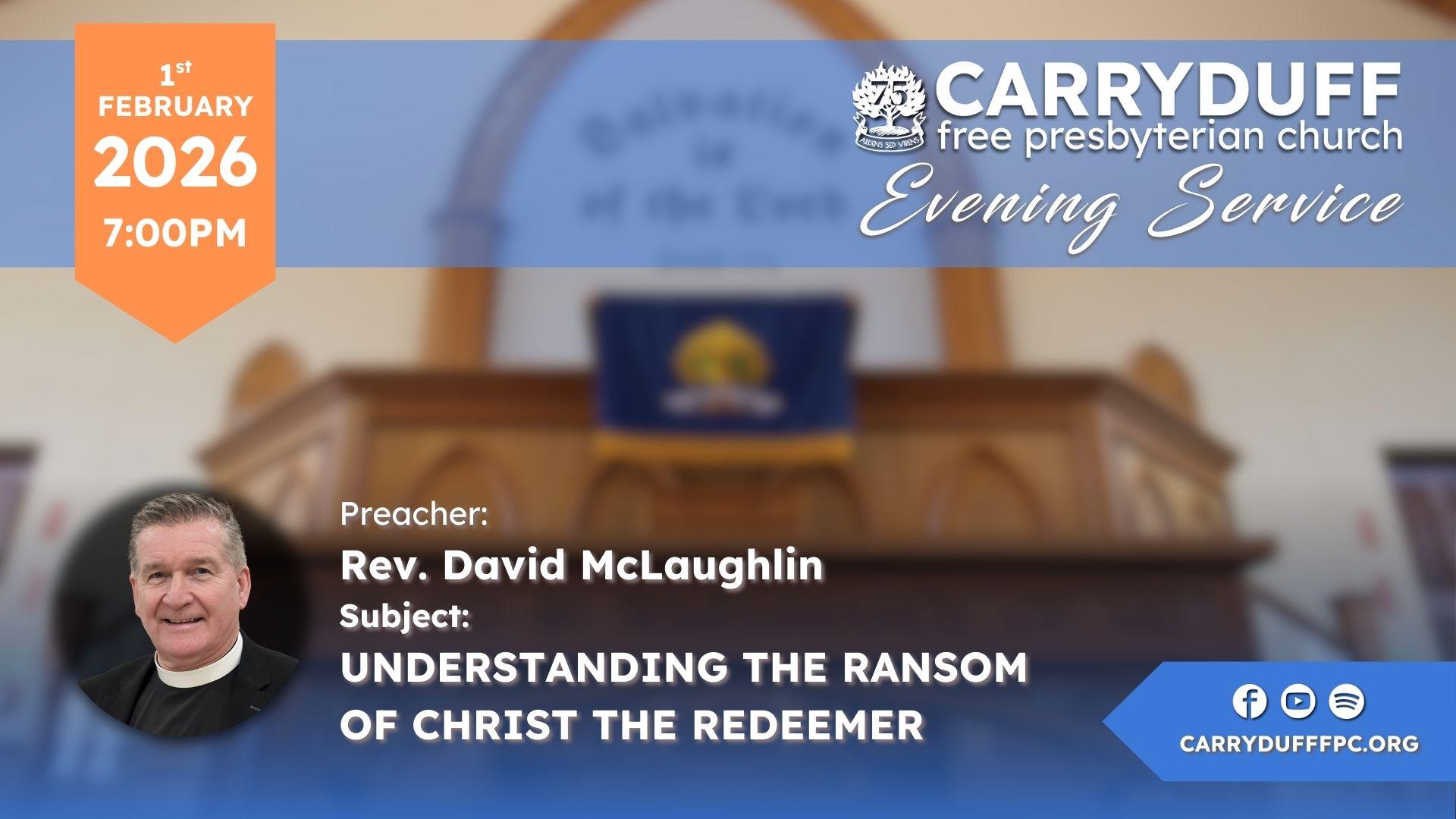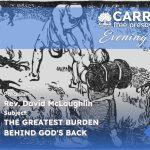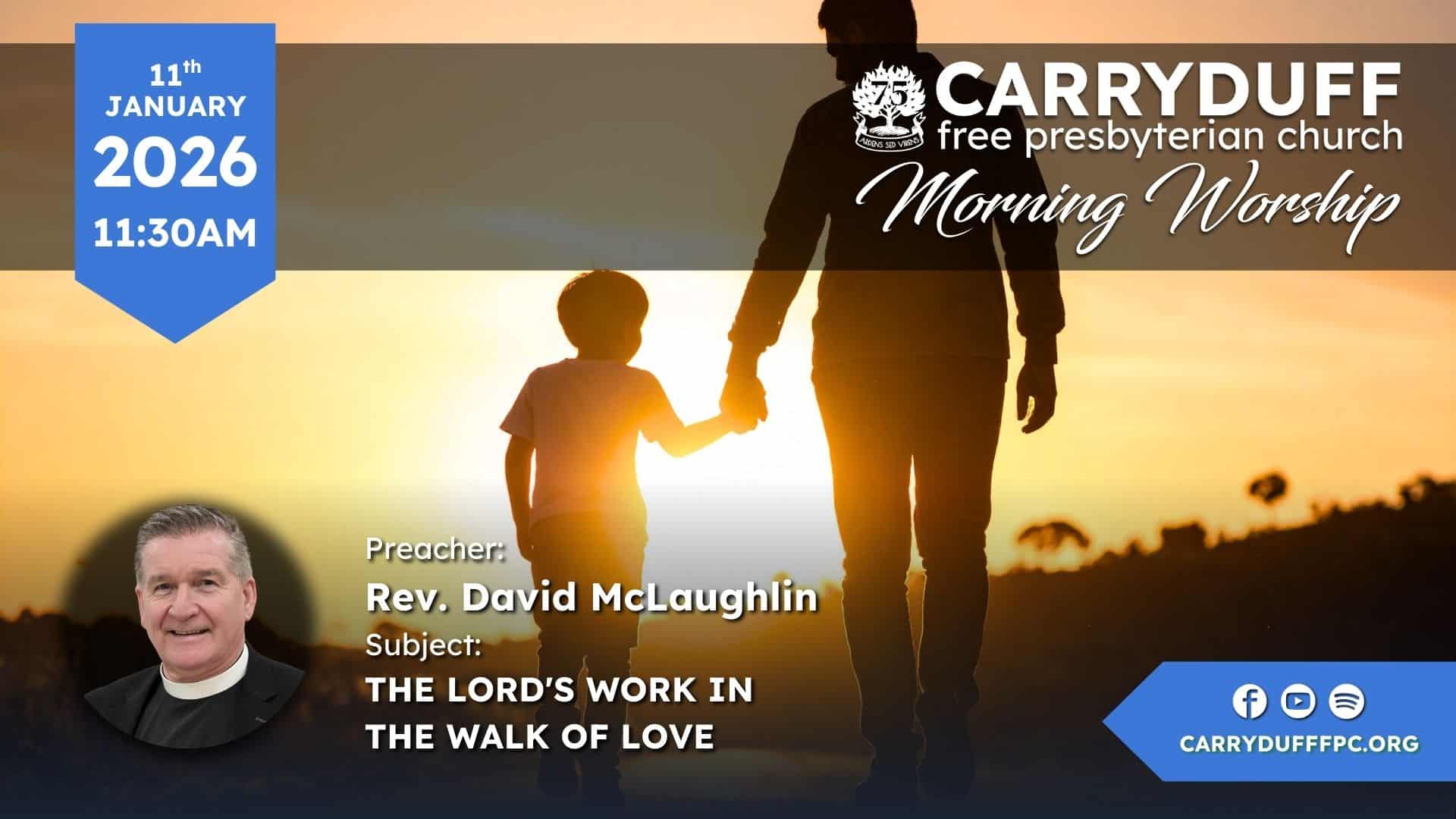Date: SUN 7:00 PM 8th June 2025
Singer: Paul Elliott
Preacher: Mr. Colin Maxwell
Bible Reference: Isaiah 53:6
All we like sheep have gone astray;
we have turned every one to his own way;
and the LORD hath laid on him the iniquity of us all.
Sermon Summary: Isaiah Chapter 53
The sermon centres on Isaiah 53, a profoundly significant passage in Christian theology, often interpreted as a prophetic depiction of the suffering and redemptive work of Jesus Christ. The preacher begins by reading the entire chapter, which describes a servant who is despised, rejected, and bears the sins of humanity, ultimately securing their salvation through his suffering. The sermon focuses particularly on verse 6: “All we, like sheep, have gone astray; we have turned every one to his own way; and the Lord hath laid on him the iniquity of us all.” This verse serves as the foundation for a three-point exposition addressing the universal problem of sin and its divine solution.
1. The Problem Faithfully Stated: Universal Sinfulness
The preacher opens by highlighting the universal nature of human sinfulness, as stated in Isaiah 53:6: “All we, like sheep, have gone astray.” This imagery of wandering sheep underscores humanity’s tendency to deviate from God’s path. The sermon draws on the Hebrew word for “astray,” which conveys wandering, deception, and error, as seen in other Old Testament passages (e.g., Psalm 107:4, 2 Kings 21:9). Sin is defined as a transgression of God’s law, with the Ten Commandments serving as the authoritative standard. The preacher emphasises that this problem is universal, applying to all except the sinless Christ. Humanity’s deviation from God’s will results in alienation from Him, incurring divine wrath and spiritual lostness. The sermon references New Testament passages, such as Matthew 18 and Luke 15, to reinforce the parable of the lost sheep, illustrating humanity’s separation from God due to sin.
2. The Problem Further Studied: Personal Responsibility
Delving deeper, the preacher addresses the question of responsibility for this spiritual lostness. While external influences—such as Adam’s original sin, the devil’s temptation, or societal pressures—play a role, the text places the blame squarely on individuals: “We have turned every one to his own way.” This phrase underscores personal accountability, portraying humans as willingly choosing their sinful paths. The sermon describes the human will as “sinfully perverse,” free yet bound by sin, likening sinners to willing slaves (John 8:34). Examples from Genesis, such as Adam hiding from God and Cain’s defiance after murdering Abel, illustrate humanity’s tendency to evade responsibility. The preacher warns against modern tendencies to downplay sin or view it through distorted lenses, citing Jeremiah 17:9 to describe the heart as “deceitful above all things, and desperately wicked.” This reinforces the need for God’s Word as the ultimate guide to reveal the true nature of sin and its consequences, described as a “hard” and “hopeless” path leading to destruction.
3. The Problem Finally Solved: Christ’s Atonement
The sermon culminates in the gospel message of redemption through Jesus Christ, the solution to humanity’s sin problem. The latter part of Isaiah 53:6—“the Lord hath laid on him the iniquity of us all”—points to Christ’s substitutionary atonement. The preacher vividly describes Jesus as the Good Shepherd who willingly bore humanity’s sins on the cross, fulfilling the prophecy of Isaiah 53. He was “wounded for our transgressions” and “bruised for our iniquities,” satisfying the demands of divine justice. The sermon references Christ’s silence before His accusers and His cry of “My God, my God, why hast thou forsaken me?” to highlight the weight of divine wrath He endured. Unlike human efforts to reform or make excuses, salvation is a supernatural act, secured by Christ’s finished work on the cross. The preacher urges the congregation to respond through repentance and faith, citing the simplicity of the gospel message: “Whosoever shall call on the name of the Lord shall be saved” (Romans 10:13). The sermon concludes with an evangelistic appeal, encouraging sinners to turn to Christ for forgiveness and eternal salvation.
Key Themes and Context
The sermon is deeply rooted in evangelical theology, emphasising the authority of Scripture, the depravity of humanity, and the centrality of Christ’s atoning work. The preacher draws on both Old and New Testament references to demonstrate the continuity of God’s redemptive plan, from Isaiah’s prophecy to its fulfilment in the Gospels. The historical context of Isaiah 53, written centuries before Christ, is contrasted with the “full light” of New Testament revelation, enabling modern believers to see its Messianic significance clearly. The sermon also engages with the audience’s spiritual state, addressing both the unsaved and backslidden believers, urging them to respond to the gospel with urgency.
Delivery and Application
Delivered with passion and conviction, the sermon reflects a traditional gospel preaching style, with a strong call to personal repentance and faith. The preacher acknowledges the weight of the message, referencing the Apostle Paul’s sense of responsibility to preach the gospel (1 Corinthians 9:16). The tone is both sobering, in addressing sin’s gravity, and hopeful, in presenting Christ’s redemptive work. The sermon applies Isaiah 53 to contemporary listeners by challenging excuses and self-justification, encouraging them to see their need for a Saviour and to act on the gospel’s call.
In summary, the sermon on Isaiah 53 presents a clear, biblically grounded exposition of humanity’s universal sinfulness, personal responsibility, and the redemptive solution provided through Christ’s sacrifice. It is a call to acknowledge sin, repent, and embrace the salvation offered by the Good Shepherd who laid down His life for His sheep.
Subscribe to the podcast here:
Spotify Podcasts | Apple Podcasts | Pocket Casts
Email | RSS | more information here








